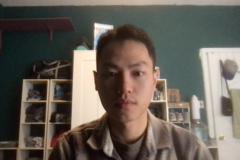Activity
Mon
Wed
Fri
Sun
Mar
Apr
May
Jun
Jul
Aug
Sep
Oct
Nov
Dec
Jan
Feb
What is this?
Less
More
Memberships
The Consciousness Path
524 members • Free
12 contributions to The Consciousness Path
Goal of the self?
Just being very honest here, in noticing my motivations, and my "deeper thoughts," on a very "down-low" level, what I've got going on is some sort of activity of "needing" to be "the best" in some kind of way. Status attainment somehow. Now, I know this isn't unique to me, and it seems pretty glaringly obvious in a lot of people's cases, but why is it there?? What does it contribute? How come so much of my self-mind activity and so much of what I do ends up giving energy to this? Because let's say it straight right now. For most of us, actual physical survival, ergo not dying, isn't something we have to think about almost EVER. We've got food shelter water this and that to take care of us. Even if it fell apart a bit we most likely wouldn't die. Yet SO much of our energy and attention is being given somewhere else! Where is our attention going? What is it we're doing? Is that what keeps us from being free and happy? I don't know, but I would appreciate some guided thoughts on the matter as I really want to bang a hammer over the head of this issue. It is so much of like, my entire experience! From impulse to emotions, to... Who knows what else. It's just so central to my experience. I even find, when it comes to dedicating my life force to something, if it doesn't gain me status, "is it worth it?" Or some such. I guess all this really feeds into the question, for me, what actually is a Self? What is it's Goal or Purpose?
4 likes • Dec '25
@Devin Henderson Just want to share my opinion based on my explorations and experience: I may be wrong, but it sounds like you're inquiring about both the personal/conceptual self AND this thing you are noticing that the personal self is secondary to. This thing more fundamental to the personal self. That part that's more fundamental, is always there, and isn't the one striving or seeking for things. It's just aware of it. It's not personal. What is it? You can only know by investigating it, because it's not a THING. Why is it there? IMO, that translates to "why is there any experience at all?" once it gets investigated. And what is its goal? I don't think it has one lol. Existence has no goal. As for the PERSONAL self and its activities dominant in the social domain and its purpose: The 'self', or the personal/conceptual 'self', is by its very nature = limited, separate, lacking, temporary, etc. We generally think the self is a "THING" that HAS these qualities of 'lack', but IMO, the self and these qualities are one and the same thing. It's like saying the SUN is LUMINOUS. It seems the sun has the quality of being luminous, but rather, it is the sun's inherent nature to be luminous. There's a difference. Luminosity cannot be separated from the Sun. You cannot lose the quality of being luminous and remain a sun, because its luminosity is not a quality, it's its nature. In the same way, lack cannot be separated from self. So then, what is a "self's" job? Survival. Being in lack, being separate, being limited, is a threat to its survival, so it is constantly preoccupied with becoming MORE as a survival strategy to prevent death/non-existence. It's trying to combat its temporary nature. Hence why people are preoccupied with even things like "leaving a legacy" after they die, beyond all the crazy stuff we do while alive. This survival impulse is what makes it so constantly pervasive. It always feels like its survival is threatened, due to its nature being of lack, which cannot change. I guess another way of saying it is this personal self is a 'belief/activity'.
What actually is a self agenda?
Hey everybody, This post isn't as much a sharing of findings but more an invitation to a question together. What really is a self agenda? I'm starting to get, in some weird way, that it's a "tool" for my 'self.' I also feel like the self agenda is tied with the "self" somehow... Like how an arm isn't the whole body, but is still a part of the body. The self agenda may not be the whole "self," but is an integral aspect of self. Side note, what would self be without an agenda?? I guess this question leads towards self as a whole. SELF. It almost feels like pushing the whole of your being into a recognizable form. SOME THING. SOME thing that can be identified and maintained. maybe this "maintained" part IS the agenda. The identified part feels more blurry, but still strong... So, what happens when all this is agenda is released? When being and purpose and whatnot is allowed to be without having a specific form? Being feels... More unspecific, but still present. Idk, I guess I'm sensing that SELF is somehow tied up with this self ACTIVITY. Any thoughts are appreciated. Hop on the train!
1 like • Aug '25
Great insights. Maintaining the identified self does seem to be the agenda in my experience. My self-agenda is so clear and it's so obvious what its purpose is. It outlines my 'self' character so well. As Peter says in the 2nd book, being conscious of the self-agenda is essentially throwing flour on an invisible man. It brings about the "shape" of the core assumptions of our self (perhaps not the ENTIRETY of the 'self', but a very huge part!). When I have gone deep into this self-agenda and really contemplated being free of it, and releasing it completely, I usually get two different reactions. Sometimes, there is a deep sense of freedom, and it reveals my inherent "Completeness". Other times, it brings about fear, because without it, life seems meaningless and that's incredibly threatening to the self. Regarding dropping the self-agenda, I often feel frustrated at Peter's words of "you can just drop it". Perhaps I'm not conscious enough, but the existential power behind it is overwhelming to say the least. Honestly, from my experience, I don't know if there is a SELF tied up with the self ACTIVITY. I don't find a SELF separate from its activity. It's a bit weird to consider that the activity IS the self, without an actual self. There seems to be just the activity.
0 likes • Aug '25
@Devin Henderson I hear you, communicating these really requires racking the brain lol. It seems like you're saying that there is a "base self" underneath the agenda/activity/methods. I do find there to be a constant "background activity" or "hum" (as Peter calls it) that gives the impression of a consistent and solid "sense of self" that generates the methods/activities/agenda. From my experience, this background hum is simply more agenda, not yet conscious. I feel like when we become conscious of some of our self-agenda, it can create this separation between what is conscious, and what is not (but often felt in the background). This almost constant background activity feels less like an activity, and more like "static" (solid and stable), while on the foreground we see the "radio channel" (coherent activity/distinctions). But if we "tune" in to it, the static seems to be just as dynamic as our agenda (radio channel), rather than being some stable base from which the agenda comes from. In other words, core assumptions drive the activity, yet the core assumptions are also an activity IMO. When you say self NEEDS that activity to exist: yes i agree because it needs the activity to perpetuate the illusion. But, I'd say from my experience, they are the same thing. Like watching a character on a show: we need the show to keep going for the character to persist. There isn't a one "outside" or "beneath", who would "suffer" if the show stopped. But the character and the show/script/story is really one thing. There is just the show.
Assertion: the reason you are not happy is because you don't want to
But I do want to be happy, that's all I want - you might say No you don't - we would say Solving problems is more important to you than actually being happy. It seems like if you just solve this problem then you can be happy. But what happens then? Can you see that almost all the time in your actual life expereince there is a problem in mind. Constantly jumping from one problem to solve to the next. What do I have to get done today? What is for lunch? How do I do this meeting right? What should I say in such and such a context? What would they think of me if I did such and such? On and on and on and on. Lets call this the problem solving experience. I will say that 98% of the time this is what most people experience. To be clear, there is nothing wrong with this experience. The only little issue is that the goal of this experience is not happiness. The goal of this is to get to happiness (or to some kind of resolution - pleasure). The goal is to solve a problem and get to some acheivement, somewhere else. What if, if you stopped trying to be somewhere else, you found that you are already happy. Im not talking about some spiritual fantasy. When do you ever really focus on just being happy now with whatever you experience in the moment, not giving any attention about how others view you, all the stuff that should happen in life and all the thoughts about the past and the future? I assert that when you actually do that, you experience being happy. It's that simple, you can try it. If you are interested in learning more and practicing, join our weekend workshop in Budapest, we will tackle this rather easy task. More info here: https://www.facebook.com/events/1914700545736851 Sign up: https://chenghsin.com/budapest-workshop
5 likes • Jul '25
My own realizations in my contemplative experience regarding this dynamic: I 100% do NOT want to be happy. I agree. There is a core belief of being incomplete and unworthy. Its perpetual goal is to seek for completion via various means. It doesn't matter whether I accomplish those goals or not, the dynamic cannot come to an end. It is like running on a hamster wheel and continuously having a new carrot dangling in front of me. Sometimes I get it, sometimes I don't, but a new carrot is always ready to take its place. I remember reading "Pursuing Consciousness" and Peter said "our self-makeup needs to persist EXACTLY as it is." In my experience, I agree. If I believe myself to be unworthy, then I MUST PERSIST as an "unworthy being". Becoming "worthy" is not the actual goal. The CHASE to become "worthy" is the goal, in other words, to persist as a flawed and broken person who will "one day be complete". Each new carrot is the promise of happiness in the future, but only the pursuit is the goal. The key insight seems to be, there is no conceptual "self" that HAS the characteristic of being "unworthy". The "unworthy" trait IS the "self". Becoming worthy then means the death of this very self. No more unworthiness = no more self. And nothing is more powerful than this primal impulse of survival. That is why it creates this perpetual self-agenda of seeking completion with self-created problems to continuously keep up the illusion of an incomplete self. The self-agenda being fueled by the primal impulse to survive makes this a constant activity. Or as Peter says in his book - "its persistence makes the Terminator look lazy". I do not think that's even a 1% exaggeration in my experience. The constant contemplation/meditation on my true nature has continued to give me glimpses of freedom from this dynamic and has weakened its grasp. It is like stepping off that hamster wheel and realizing the story of unworthiness was just a dream. The carrots were holograms. However, each time I continuously probe into its illusory nature, it often evokes an immensely powerful reaction from the self-mind to re-establish the status quo. It often overpowers my efforts. It's like every time I get close to what seems like the door out of this, "it" brings out the big guns to boot me all the way back.
Huge Shift thanks to Consciousness Work
For as long as I can remember, I have struggled to honestly share what I think and feel in relationships with other people. I felt I had to adapt the message — or even change it altogether! — if I suspected it might make the other person uncomfortable, and/or therefore reject me. Not to mention the countless emotions I would create to manipulate myself into protecting my fragile person-as-seen-by-them. So I was surprised when, a few weeks ago, I noticed that I no longer do that. It suddenly occurred to me: I no longer create thoughts, emotions or states to manipulate others into liking me anymore! Sure, I'm not doing anything antisocial either (not that I want to... maybe just a little bit 😉 ), but the way I show up in the social domain feels completely different now. I feel more honest, authentic, integrous, complete. I attribute it to Consciousness Work. So thank you everyone who has made this work possible, it's been a game-changer for me.
4 likes • Jul '25
I can relate, as I also struggled with this a lot, and still do, but it's gotten a lot better. Being conscious of what the real purpose behind my actions are, existentially, is what has helped me loosen this tendency. To me, it can feel like falling into a void as the 'self' no longer manipulates for its needs, but it's simultaneously very freeing. I feel less like an 'object within' in the social world. Thanks for sharing!
How to Stop Suffering Without the Need to Avoid Discomfort?
This question came to my mind during the dyad exercise today. I can distract myself and avoid doing whatever triggers suffering. For example, Since I am anxious about dating, then I just don't do it. However, I do want to date and something is wrong if I don't even try. This internal conflict becomes another source of suffering. To deal with this new suffering, I distract myself with some activity so I would not think about my life. When I heard Peter said "just stop the suffering", I thought it meant I could do it in anyway I could. So I could stop looking for dates and stop the suffering, or stop socializing and stop the suffering. I can stop doing anything that has suffering in the thought of doing it, but I can only go so far before I become I unhappy living that way. It might be possible to separate the thought of doing something from the doing itself, but I don't know how. For example, when I am hungry, a thought about eating comes up, and I go eat. However, if I was obese or had body dysmorphia, my thinking would go down a negative spiral of self criticism and suffering. I have not found a way to break such chain of thought from the initial thought "I want to do to X". To be blunt, I am tired of trying to sift through the mess of the thought chain and try to find the weakest link to break, or trace the tangled mess to the source, the bottom line. I want to throw all of it in the trash so to speak, and start anew. So far I have not been able to free myself from the thought chain. I speculate that it is tied to my identity somehow. This would mean I would have to start a new identity from scratch. I don't know if I can do that. It sounds like I am trying to do eye surgery on myself by looking at a mirror.
1 like • Jul '25
My 2 cents for what it's worth: I also find that the incessant thought patterns is tied to our identity, and its persistence and power is tied to the primal impulse of survival, hence making it extremely powerful. I have not found a way to stop the thought patterns from arising, but I have found a way to free myself from suffering them (at least the majority of the time). If Peter's "recognize you're doing it and just stop doing it" isn't graspable, the following is what has worked for me over the years: You have to first get who you are. Whenever I have "unpleasant" thoughts, I can go to "who" I really am, beyond the conceptual separate self, and those distressful thoughts are then rendered powerless. States and experiences don't affect who I really am, it only affects the conceptual self (or simply, it's all mind). When there are thoughts causing distress, instead of sifting through the thought chain, contemplate the question "to whom does this thought arise to?" This was often taught by Ramana Maharshi. If you are experiencing a thought or feeling, then you must not BE that thought or feeling, you must be the one experiencing/perceiving it. Notice that whatever THAT is, it is not affected by the thought or feeling, it's simply just aware of it. To begin, you can contemplate, "if I am aware of these thoughts and feelings, I must not BE these thoughts and feelings. yet I am aware of them. who is this "I" that is aware of them?" if you "find" it, you'll see that it itself is never tainted by experience. To be clear, this is not a suppression or distraction from the thoughts or feelings. It's a dis-identifying from them. An analogy I like is, who you are is like the TV screen. The physical screen. The screen itself doesn't care what is playing on TV, whether it's a scary movie (bad thoughts) or a kids cartoon (good thoughts). It is unaffected by, yet welcomes, any experience (show).
1-10 of 12
@david-kim-3719
Long time student and explorer of Non-Duality, Advaita, Zen, etc.
Active 17d ago
Joined May 13, 2025
Los Angeles, CA
Powered by





